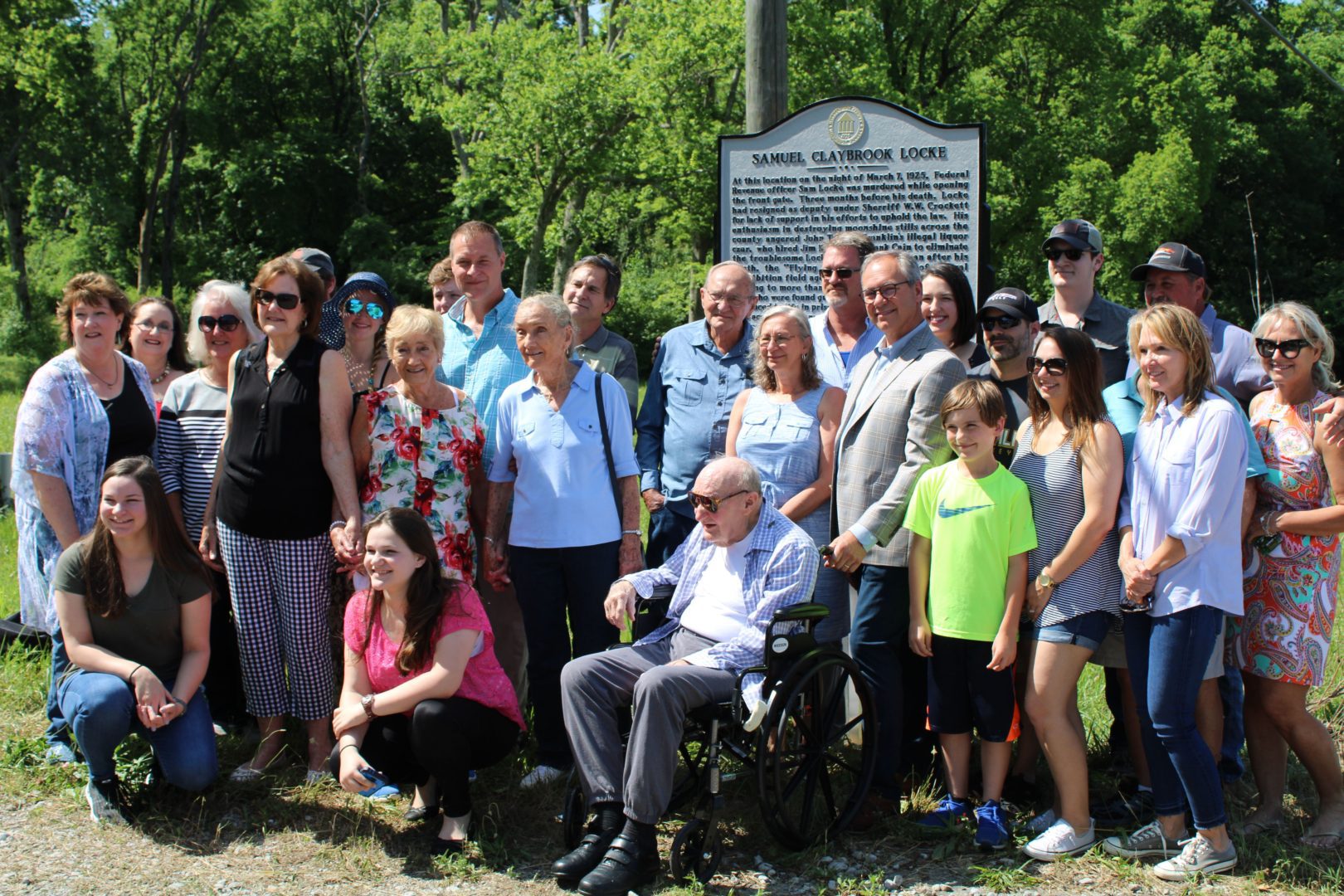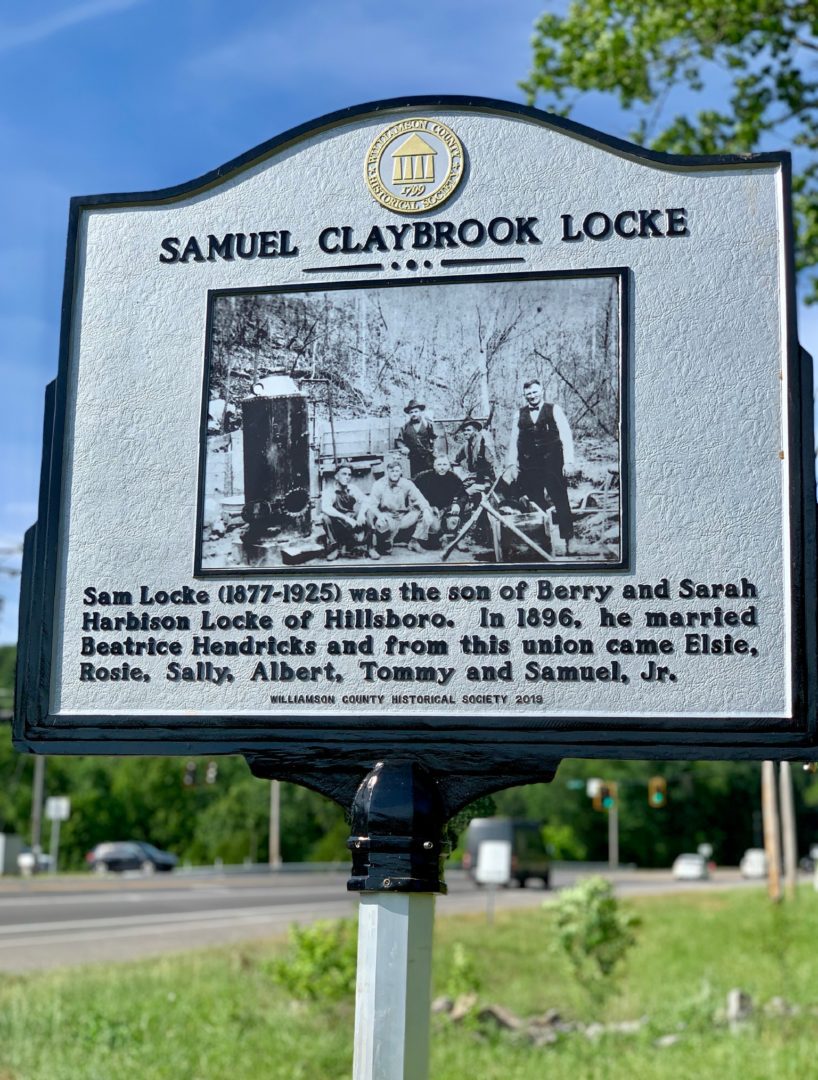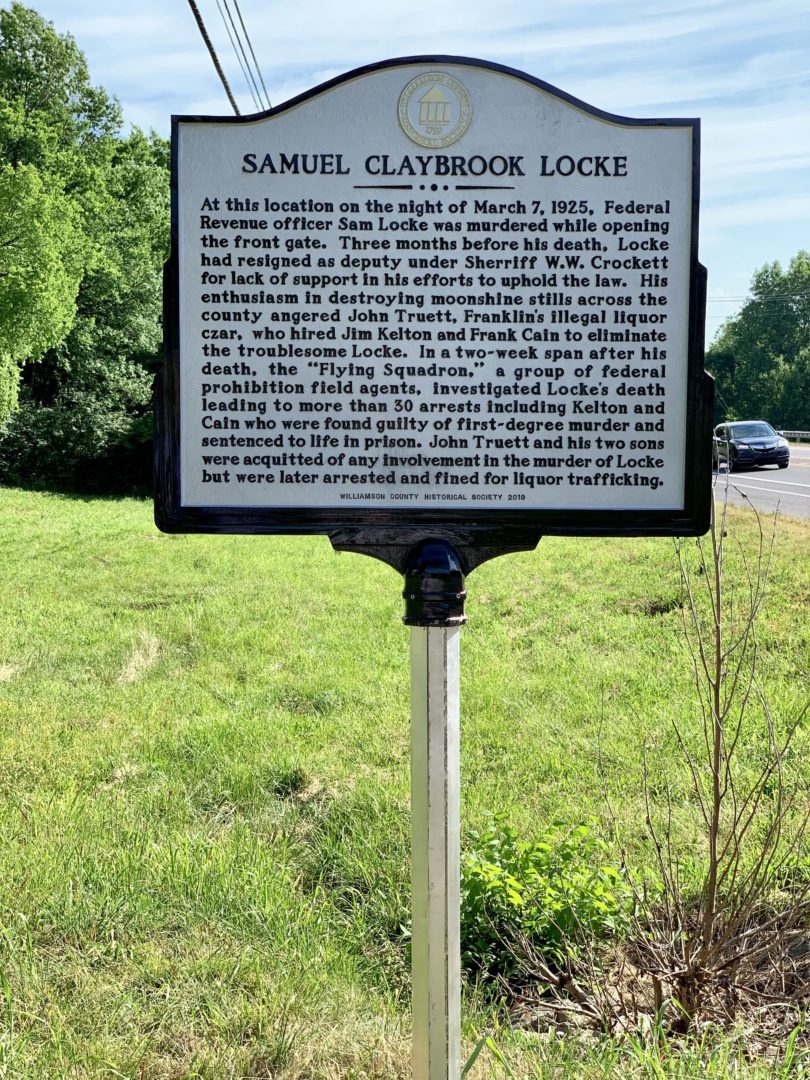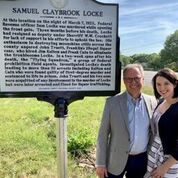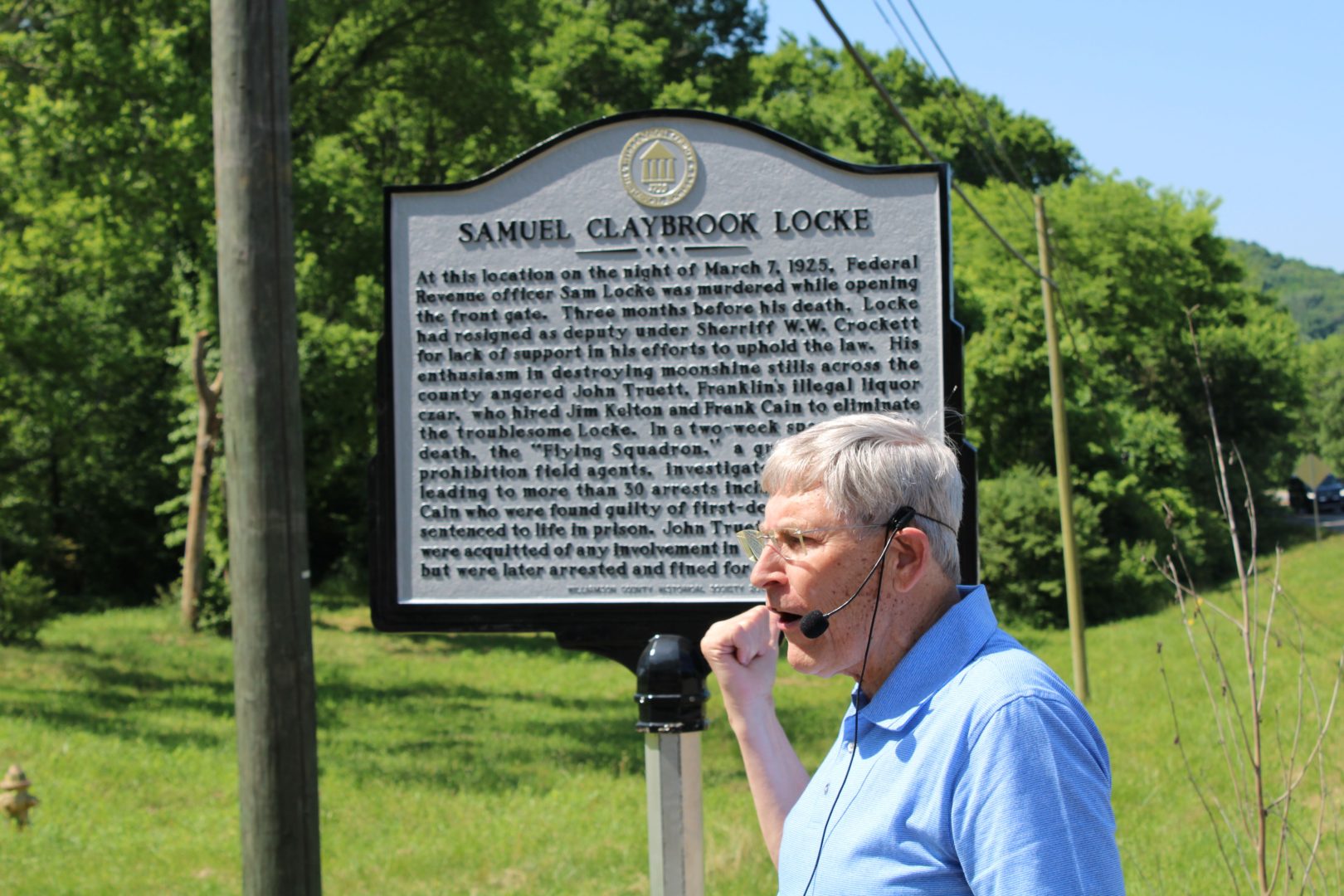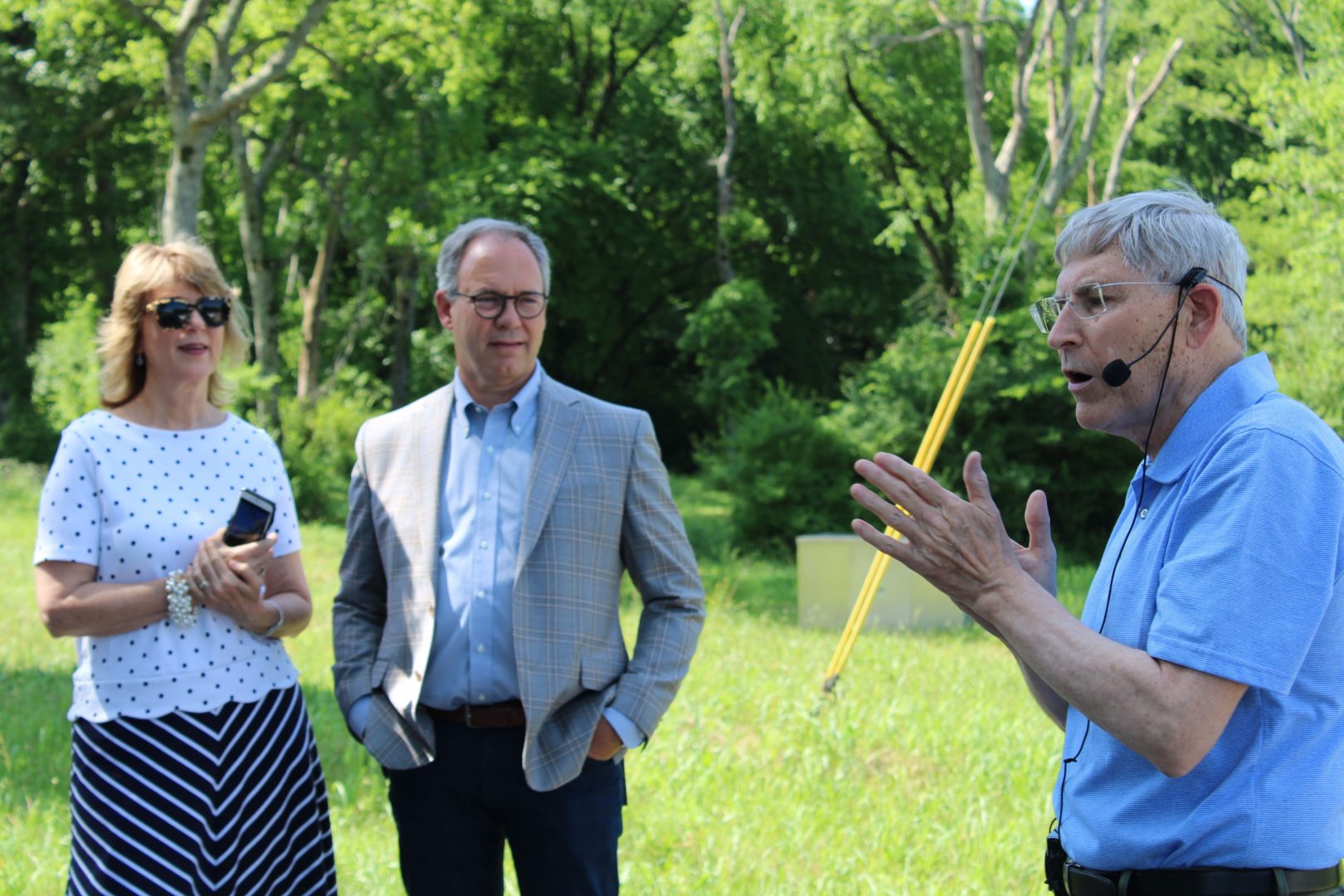May 25: Sam Locke Historical Marker Dedication
On Saturday, May 25 at 10 a.m., more than 40 family members, county officials including Sheriff Dusty Rhoades, and fellow history lovers gathered for the dedication ceremony of Williamson County’s newest historical marker. The historical marker was placed at 2600 Hillsboro Road near the intersection of Sneed Road, at the location where Constable Samuel Claybrook Locke was murdered in an ambush attack by hired gunmen outside his home on March 25, 1925 for revenge in his work to shut down illegal moonshine stills.
The event began with welcome remarks from Samuel Locke’s great grandson Tony Locke who led efforts to have the marker placed. The ceremony’s invocation was given by Samuel Locke’s great-great grandson and namesake Samuel Lewis. Williamson County historian Rick Warwick offered commentary about the federal agent and his determination to do the right thing in upholding Prohibition law of the time. Warwick then asked Locke’s great-grandson Tony Locke and great-great granddaughter Jena Locke Thomas to unveil the marker and invited attendees to join the family for a reception at Grassland Heights Baptist Church catered by Chef’s Market.
The historical marker is inscribed with a photo of Samuel Claybrook Locke on one side that reads “Sam Locke (1877-1925) was the son of Berry and Sarah Harbison Locke of Hillsboro. In 1896, he married Beatrice Hendricks and from this union came Elsie, Rosie, Sally, Albert, Tommy and Samuel, Jr.” The other side of the marker tells the story of Locke’s murder with the inscription: “On the night of March 7, 1925, Federal Revenue officer Sam Locke was murdered while opening the front gate. Three months before his death, Locke had resigned as deputy under Sheriff W.W. Crockett for lack of support in his efforts to uphold the law. His enthusiasm in destroying moonshine stills across the county angered John Truett, Franklin’s illegal liquor czar, who hired Jim Kelton and Frank Cain to eliminate the troublesome Locke. In a two-week span after his death, the “Flying Squadron,” a group of federal prohibition field agents, investigated Locke’s death leading to more than 30 arrests including Kelton and Cain who were found guilty of first-degree murder and sentenced to life in prison. John Truett and his two sons were acquitted of any involvement in the murder of Locke but were later arrested and fined for liquor trafficking.”

